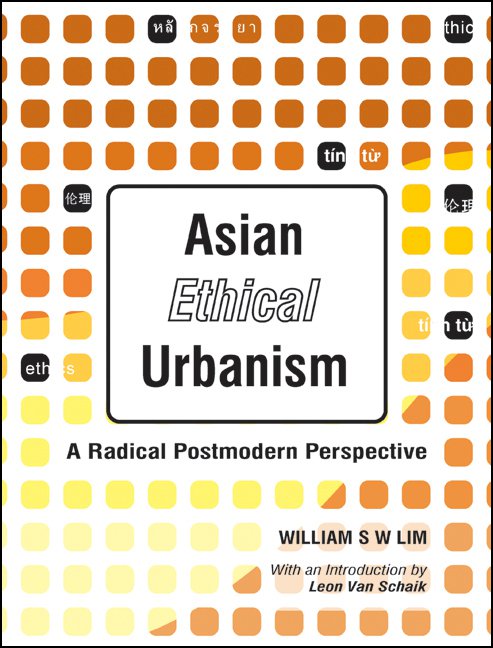
Asian Ethical Urbanism: A Radical Postmodern Perspective
- Description
- About the Author
-
With the impending demise of modernist planning, the footprints and corpses of failed modernist visions are littered everywhere. A vacuum of implementable urban theories has occurred at the time when unprecedented expansion and restructuring of cities in rapidly developing economies are taking place. In this collection of essays, William S W Lim zeroes in on the peculiarities and dynamics of present Asian urban and architectural conditions in order to challenge and transcend the socio-ecological forms and political influences generated by the current system of global capitalism.
Part I of this book consists of the main essay, which attempts to establish baselines for an effective formulation of ethical urbanism in Asia, by clarifying issues that have previously been unquestioningly bound up with Western values and discourses. As an architect/urbanist, Lim lends a determinedly spatialist and environmental perspective to issues such as rights, ethics, happiness and social justice, while compelling his readers to rethink previously established notions about them.
Part II of this book consists of three city studies on Hanoi, Shanghai and Singapore, completed in the last two years, which attempt to match Lim's theoretical formulation with actual conditions occurring in Asia today. Also included is “Asian Architecture in the New Millennium”, a fascinating discourse on contemporary design conducted from a postmodern perspective.
-
William S W Lim graduated from the Architectural Association (AA) London and continued his graduate studies at the Department of City and Regional Planning, Harvard University. Lim is a citizen of Singapore. He was principal architect at Malayan Architects Co-Partnership from 1960 to 1967, Design Partnership (later renamed DP Architects) from 1967 to 1981, and William Lim Associates from 1981 to 2002. Lim is co-founder and chairman of the Asian Urban Lab (2003) and president of AA Asia. He was also president of the Singapore Heritage Society from 1988 to 1997, and of the Singapore Planning and Research Group (SPUR) from 1966 to 1968.
Cover Type: Paperback
Page Count: 276
Year Published: 2005
Language: English
